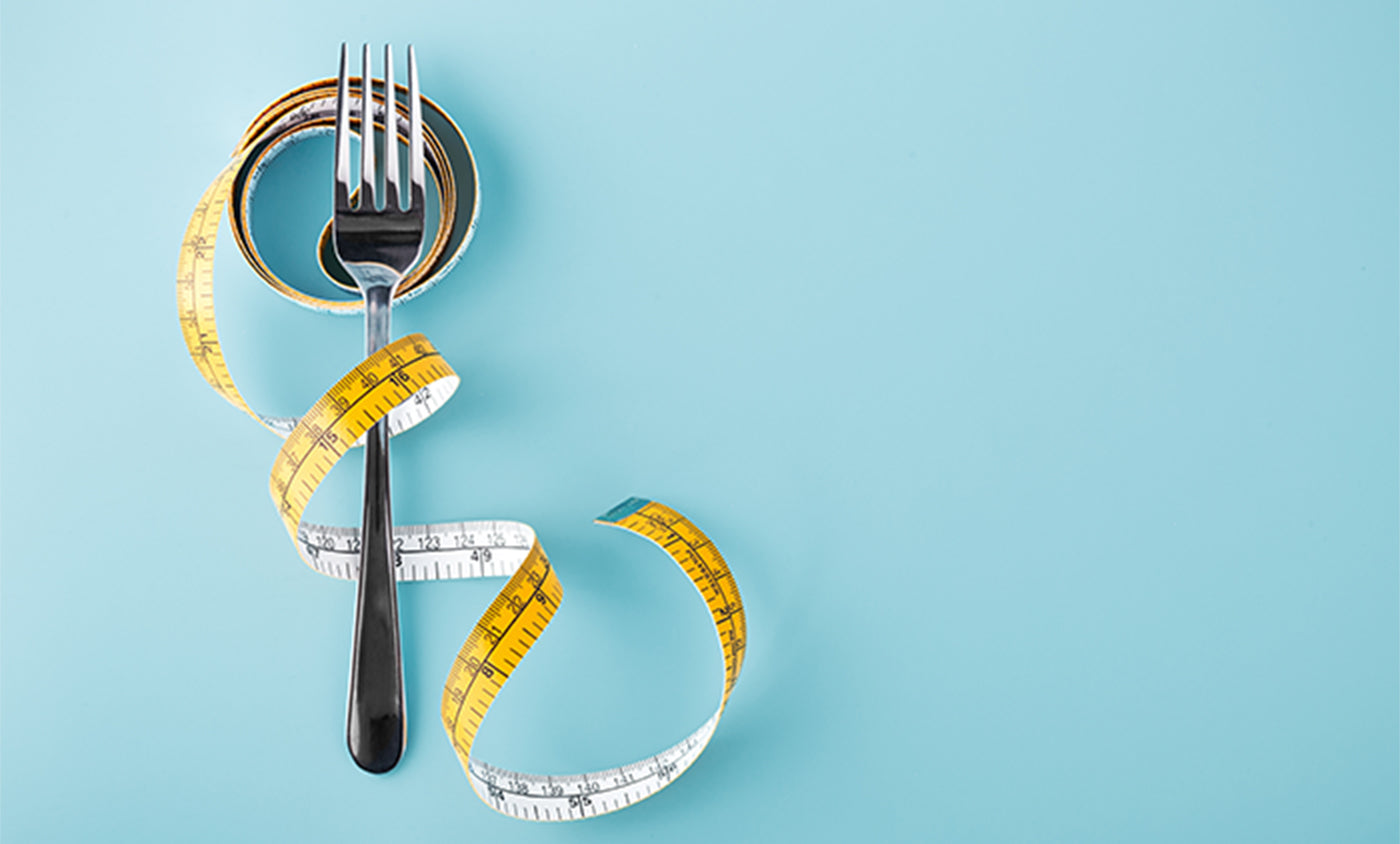Things you’ll learn in this blog: |
How many times have you dieted before?
Research by Diet Chef has shown that Women spend an average of 17 years of their life on a diet.
It’s a truly staggering statistic! And one that shows that while Women are experts at following diets, there is a real struggle to keep any weight lost off.
It’s important that you figure out an eating plan that will work for you, fitting in with your job, kids and lifestyle. This will help you stick to your weight loss plan and keep it up once you’ve reached your goal weight. Yes, I know it sounds like a lot to ask, but we will start with changing the diet and making other small changes along the way, which will help you achieve your goal.
In this blog, our resident Nutritional Therapist, Angie, takes us through the best diets for long-term weight loss.

Why is it important to sustain weight loss?
You want to lose weight now!
You might not even really be thinking about keeping the weight off, but with a busy lifestyle, it sometimes feels like a full-time job. It’s a tricky business as weight can go back on more quickly than it came off.
It’s a tremendous psychological blow when you think you’re on the right track, only to step onto the scales and see that you’ve taken a step backward.
This up-and-down routine is the definition of yo-yo dieting, and the term isn’t reserved only for people who yo-yo drastic amounts of weight.
The American Heart Association (AHA) found that women who yo-yo diet as little as ten pounds have more risk factors for heart disease than women who sustain weight. And “Weight cycling” has been linked to high blood pressure, type 2 diabetes, and cancer.
So if you want to lose weight for your health, it’s equally important to sustain the weight loss over time. It’s a long-term lifestyle change more than a short-term diet (or at least it should be if improved health is your aim).
Related content: Is being overweight or obese bad for my health?
The benefits of gaining control of your weight…
Ask one hundred people why they want to lose weight, and you’ll likely get 100 different answers.
And that’s a good thing!
Your reasons for weight loss should be personal. If it’s not, your motivation will wane, and you’ll find that any weight you lose will pile on again.
Some reasons you might want to lose weight include:
- To gain more confidence and energy
- Improve your mood
- Feel better in your clothing
- Decrease your risk of health conditions.
So, let’s get onto some of the best diets for Women who want to lose weight sustainably.
Which diet is best for long-term weight loss?
A quick Google and you’ll find hundreds of different diets, from the vinegar diet to the cotton ball diet (definitely not those we recommend) and even things like weight watchers.
So how do you know which diet will work and help you lose and maintain weight and keep your body healthy?
That’s where Angie comes in - she’s all about getting you to your optimum health - in a way that suits you.
So here are the diets she recommends for Women’s long-term and sustainable weight loss (in no particular order).
- Keto
- Vegan
- Paleo
- Intermittent fasting
1. Keto Diet
First up is the increasingly popular keto diet. It has certainly gained hype over the last few years, and you’ve no doubt heard of it.
What is the Keto diet?
The Keto diet is a low-carb, high-fat diet that aims to send the body into a state of “ketosis.”
This state is reached when your body runs out of carbohydrates and uses fat as fuel.

There are multiple different ways that you can undertake this diet depending on your goals and what is most sustainable:
A standard ketogenic diet (SKD) is a very low-carb, moderate protein and high-fat diet. It typically contains 70% fat, 20% protein, and only 10% carbs.
A cyclical ketogenic diet (CKD) involves periods of higher-carb refeeds, such as five ketogenic days followed by two high-carb days.
A targeted ketogenic diet (TKD): This diet allows you to add carbs around workouts.
High protein ketogenic diet: This is similar to a standard ketogenic diet but includes more protein. The ratio is often 60% fat, 35% protein, and 5% carbs.
Ketotarian or pescatarian keto: This is the vegetarian option of the standard keto diet. You won’t get as much fat from meat options, but it could be healthier if you are concerned about too much fat from meat.
What can you eat on the keto diet?
Let’s start with what you can eat, as this will make up most of your diet.
- Fish and seafood
- Low-carb veggies
- Cheese
- Avocados
- Poultry
- Eggs
- Nuts
- Plain Greek yogurt
- Cottage cheese
- Berries
What food should you avoid on the keto diet?
There are, of course, things you can’t eat (a lot of) if you choose to go with the keto diet.
Nothing is off-bounds, but they should certainly be consumed in moderation.
- Grains
- Legumes
- Sugar
- Rice
- Potatoes
- Candy
- Juice
- Alcohol
- Fruits
What are the benefits of the Keto diet?
The keto diet can have some pretty dramatic results if you stick to it and reach ketosis. However, you have to drastically reduce your carbohydrate intake to do this.
The potential benefits go beyond “just” weight loss, and include things such as:
- Can support long-term weight loss
- Supports liver and detoxification of the body
- Lowers inflammation and supports hormones
- Reduces blood pressure
- Reduces blood sugar and insulin
- Being explored as a treatment for multiple chronic conditions (cancer, Alzheimer's, Epilepsy, PCOS)
Is the keto diet easy to sustain?
One of the main reasons it can be a success for people as a long-term weight loss is that it doesn’t require you to count calories. This means you can feel full and won’t constantly search for snacks to fill you up. In theory, you can maintain this diet to keep weight off long-term.
However, some side effects can lead to people giving up on it early, including
- Keto ‘flu’
- Increased thirst
- Increased LDL cholesterol.
It’s also not recommended for people with kidney disease or that do not have a gallbladder.
If Keto suits the kinds of food you enjoy eating, you will be able to maintain it over time.
Related content: The Ketogenic diet 101: Beginners guide to getting started
Does our nutritionist recommend the Keto diet?The Keto diet is a great diet that can have dramatic effects without eliminating food groups from your diet. This makes sustaining weight loss easier over time than other diets. |
2. Vegan Diet
The Vegan diet is becoming increasingly popular for health and ethical reasons. Many people avoid consuming products from animals due to cruelties in the meat and dairy industries.
What is the Vegan diet?
A vegan diet is based on plants (such as vegetables, grains, nuts and fruits) and foods made from plants.

Vegans are different from vegetarians as they do not eat any foods that come from animals, including dairy products and eggs. It’s not just about excluding meat and meat products.
What can you eat on a vegan diet?
You can eat many things on a vegan diet, and companies are increasingly catering products to vegans.
So what does that include?
- All vegetables
- Whole grains such as spelt, teff, amaranth and quinoa.
- Plant milk and yogurts that are fortified with calcium.
- Algae, spirulina and chlorella supply iodine and protein
- Nutritional yeast adds a cheesy flavor to dishes and increases the amounts of protein.
- Sprouted and fermented plant sources like Ezekiel bread, tempeh, miso, natto, sauerkraut and kombucha.
There is a whole range of inventive recipes that you can follow if you are vegan. The main challenge is getting enough protein and subsequent micro vitamins into your diet. However, there are ways to do this, and supplementation can help if you are struggling.
What foods do you avoid when vegan?
Being vegan is different from other diets because it eliminates entire food groups.
It’s not usually recommended by nutritionists unless there is an intolerance or ethical reason for removing it.
In the vegan diet, you should exclude:
- All meats from beef, turkey, chicken, lamb and pork, to name a few.
- All fish and seafood
- All dairy products
- All eggs
- Any bee products
- All animal ingredients like whey, lactose, gelatin, fish oils, and L-cysteine
What are the benefits of being vegan?
For many people, being vegan is an ethical and moral choice driven by environmental and animal welfare concerns. So, for many, this is the primary benefit of following a vegan diet.
However, there are also health benefits to following a vegan diet that might lead people to adopt it.
It’s not about restricting calories, so it doesn’t feel like a diet. This makes it sustainable, and it’s reported that those who follow vegan diets have a lower Body Mass index (BMI) than those who don’t.
However, you do need to ensure that you don’t exceed your calorie intake (as it’s possible), or else you will gain weight. Despite this, the vegan diet is also more successful for weight loss than similar low-fat diets, such as vegetarianism or calorie-restricted diets.
Plus, many more studies proclaim the health benefits of veganism, such as
- keeping blood sugar in check
- reducing the chances of type 2 diabetes
- supporting heart health
- reducing blood pressure
- Lowering cases of cardiovascular heart disease
- reducing levels of LDL cholesterol and total cholesterol,
So there are many tangible benefits of going vegan.
Is the vegan diet easy to sustain?
There are many tasty options with a vegan diet, so it’s undoubtedly one of the easiest to maintain if you enjoy,
However, as you are not eating meat or dairy, you will need to ensure that you get the right nutrients, including;
- Vitamin B12
- Vitamin D3
- EPA and DHA
- Iron
- Iodine
- Calcium
- Zinc
Assuming you ensure you get these nutrients, or supplement them, then the vegan diet is a very healthy and sustainable option for those who wish to follow it.
Does our nutritionist recommend a vegan diet?If you wish to give up animal products for any reason, then a vegan diet is the only choice. Otherwise, reducing your meat or animal product consumption is possible without completely eliminating them - and that might be easier to maintain. |
Related content: Vegan weight loss, can going vegan help you lose weight?
3. Paleo Diet
The paleo diet became all the rage in the late 00s and is still popular with gym goers looking to eat “clean.”
What is the Paleo diet?
The paleo diet, or the “hunter-gatherer” as it’s also known, is short for a paleolithic diet. It’s the diet our ancestors used to follow and is based on the premise that you can eat anything you would be able to grow or hunt. There were no processed foods available when cavemen were around.

This means that the paleo diet mainly consists of protein, vegetables and carbs that are grown (i.e., potatoes and rice).
It’s said that this is the nutrition that most closely matches the biological designs of humans, and much of the human genome developed on this type of high-protein diet.
There are a few different variations of the paleo diet that you can follow:
The Primal Paleo Diet.
This is where you eat raw, minimally processed foods, such as fruits, vegetables, certain oils, and dairy products. Cooked meats are allowed, but all other foods should be as close to natural as possible.
The Normal Paleo Diet
This is where you eat what we would typically associate with Paleo, such as fruits, vegetables, nuts, eggs and seeds.
The Strict Paleo Diet
The strictest form of the paleo diet is where you consume only water, fresh fruits, vegetables, nuts and seeds, meats and fish, and it avoids whole foods, such as rolled oats, beans and legumes.
What can you eat on the paleo diet?
So, what diets can you eat if you are following the paleo diet?
- Meat
- Fish
- Eggs
- Vegetables and lots of them
- Fruits
- Nuts
- Seeds
- Herbs
- Spices
- Healthy fats and oils such as avocado.
Anything that is not processed leaves a lot of nutritious homemade options.
What foods do you need to avoid on the paleo diet?
The paleo diet does involve eliminating some food groups, mainly things that would not have been available to our ancestors, including
- Processed foods
- Whole grains
- Sugar
- Soft drinks
- Dairy
- Legumes
- Artificial sweeteners
- Vegetable oils
- Margarine
- Trans fats.
The plus side of the paleo diet is that it naturally removes a lot of things that are “unhealthy,” such as processed food, cakes and potato chips. So it will help you remove a lot of calorie-dense food that doesn’t fill you up.
What are the benefits of the paleo diet?
For most people, following the paleo diet with result in an increase in fiber and a decrease in processed foods. Which by itself will result in massive benefits to your health.
Some of the reported benefits from the paleo diet include:
- Increase in blood glucose stability
- Improved insulin sensitivity
- Lower blood pressure
- Reduced weight
- Improved cholesterol
- Improved satiety
Is the paleo diet easy to sustain?
The paleo diet allows you to consume many foods, so many people find it easy to sustain as it contains many essential nutrients our bodies need. You can also mix up your food to make it palatable and easy for taste buds.
It might take some time to get used to if you love a ready meal or sugary drinks - but it’s a lifestyle change that allows you to eat a lot, feel full and lose or maintain weight.
Related content: Paleo vs Keto: how to choose the best diet for you
Does our nutritionist recommend the paleo diet?The paleo diet allows you to eat a wide range of whole foods, which enables you to follow a healthy and balanced diet. It’s a great option that aligns with how the human body has evolved. |
4. Intermittent Fasting
Finally, we get onto intermittent fasting, which is regularly discussed as a way to lose weight and keep it off.
What is Intermittent Fasting?
Intermittent fasting involves following an eating schedule where you only eat for a set number of hours each day at a specific window. The rest of the time is spent fasting, i.e. not eating.

There are quite a few different versions of intermittent fasting under different names that you might recognize:
16 / 8 Fasting- you skip breakfast and then restrict your eating window to 8 hours of the day. So you stop eating at 7 pm and fast till 11 am the next morning, which means your eating window is between 11 am and 7 pm.
Eat-stop-eat: This involves not eating for 24 hours once or twice a week. So you skip dinner and don’t eat till dinner the next day.
5:2 Diet: You only consume 500-600 calories on two consecutive days and normally eat the other five days of the week.
What can you eat if you are intermittent fasting?
With fasting, there is no strict regime on which foods you can eat, but it is more about when to eat.
It’s an eating pattern rather than a diet - so you don’t have to eliminate any specific foods.
What are the benefits of intermittent fasting?
Research shows that intermittent fasting has many health benefits for weight loss and reducing inflammation (which can, in turn, improve many health conditions).
Why? Because when cells fast, they initiate repair.
Additionally, they will digest and remove dysfunctional and old proteins that build up in the cells - known as autophagy.
Plus, fasting can increase Human Growth Hormone by 5-fold which supports the maintenance of lean mass in muscle and bone. In terms of losing weight, it will enhance fat loss and muscle gain.
Finally, fasting will improve insulin sensitivity. It has been found to drop insulin levels dramatically and support accessing stored body fat.
Is intermittent fasting easy to sustain?
Choosing intermittent fasting over others takes a certain mindset because you need mental strength and willpower. Eating whenever you feel like it can become a habit, and one you’ll have to break to stick to any restricted diet.
If you are unsure, try the 16/8 method first, as many find this to be the simplest, most sustainable and easiest to stick to.
Does our nutritionist recommend intermittent fasting?Intermittent fasting can help you break the habit of eating and reduce your overall calorie intake. It can be difficult to stick to, but it has many benefits if you can. |
How can I sustain the diet once I’ve chosen one?
One of the best ways to ensure you don’t stray from the path is to visualize what you are trying to achieve.
How will you feel?
How will you look?
How much more will you be able to achieve?
To help visualize, it’s a good idea to write down your goals and why you are trying to achieve them. This will be your “go-to” whenever you feel you’re struggling. Put a copy somewhere around the house and carry another around with you.
As you meet your goals weekly, treat yourself to something that won’t involve piling on the pounds, such as a meeting with friends or a massage.
Don’t be put off by negative comments. You’re doing this for yourself, not someone else.
Which diet is right for you?
The answer will be different for everyone - it’s all about you.
If you want to sustain long-term weight loss, choose a diet right for you. One that suits your dietary needs but also that’s palatable to you.
To keep any weight, you lose off; you should focus on your long-term goal and ensure you have this in mind when doubts creep in. Make a plan in advance so you know what you’ll be eating and when and do your shopping to include the items you’ll need.
Focus on what you want to achieve, not what others expect. And don’t forget to treat yourself now and then. It can be challenging, but that doesn’t mean you can’t have some joy along the way!
If you need some help losing weight, then PhenQ might be able to help with weight loss and maintenance.
Related: B12 for Weight Loss - Shots vs Natural Sources and Supplementation




